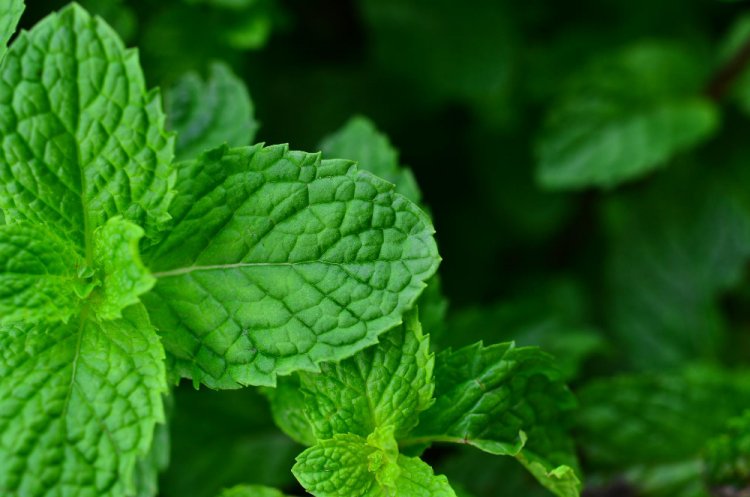Spearmint: A Versatile Herb with Many Benefits
Spearmint, scientifically known as Mentha spicata, is a perennial herbaceous plant that belongs to the Lamiaceae family. It is native to Europe and Asia but is now widely cultivated around the world for its culinary, medicinal, and aromatic properties. Spearmint is characterized by its vibrant green leaves, distinctive aroma, and refreshing flavor. In this article, we delve into the various aspects of spearmint, including its history, cultivation, uses, and health benefits.

History and Cultivation
Spearmint has a long history of cultivation and use, dating back to ancient times. It was prized by the ancient Greeks and Romans for its culinary and medicinal properties. The name "spearmint" is believed to derive from its pointed, spear-shaped leaves.
Today, spearmint is cultivated in many regions with temperate climates, including Europe, Asia, and North America. It thrives in well-drained soil and partial shade, although it can tolerate a range of growing conditions. Spearmint is typically grown from seeds or cuttings and requires regular pruning to maintain its vigor.
Culinary Uses
Spearmint is a popular culinary herb used in a variety of dishes and beverages around the world. Its fresh, minty flavor adds a refreshing zest to both sweet and savory recipes. Here are some common culinary uses of spearmint:
- Tea: Spearmint tea is a soothing and refreshing beverage enjoyed hot or cold. It is often brewed by steeping fresh or dried spearmint leaves in hot water.
- Salads: Chopped spearmint leaves can be added to salads to impart a burst of flavor and freshness.
- Sauces and Dressings: Spearmint can be used to flavor sauces, dressings, and marinades for meats, vegetables, and grains.
- Desserts: Spearmint pairs well with chocolate and is often used to flavor desserts such as ice cream, cookies, and cakes.
- Cocktails: Spearmint is a key ingredient in several classic cocktails, including the mojito and the mint julep.
Medicinal Benefits
In addition to its culinary uses, spearmint has a long history of use in traditional medicine for its various health benefits. Here are some of the potential medicinal properties of spearmint:
- Digestive Aid: Spearmint tea is commonly used to alleviate digestive discomfort, including indigestion, bloating, and gas.
- Respiratory Health: The menthol content in spearmint may help relieve symptoms of respiratory conditions such as coughs, colds, and congestion.
- Antimicrobial Properties: Spearmint contains compounds with antimicrobial properties that may help combat bacterial and fungal infections.
- Anti-inflammatory Effects: Some studies suggest that spearmint may have anti-inflammatory effects, which could potentially benefit conditions such as arthritis and asthma.
- Menstrual Relief: Spearmint tea has been studied for its potential to alleviate symptoms of menstrual cramps and hormonal imbalances.
Aromatic and Cosmetic Uses
Spearmint's refreshing aroma makes it a popular ingredient in various cosmetic and personal care products. Its essential oil is used in perfumes, soaps, lotions, and other beauty products for its invigorating scent and potential skincare benefits. Spearmint essential oil is also used in aromatherapy for its uplifting and energizing properties.
In conclusion, Spearmint is a versatile herb with a wide range of culinary, medicinal, aromatic, and cosmetic uses. Whether enjoyed in a cup of tea, a flavorful dish, or a fragrant beauty product, spearmint adds a delightful touch to many aspects of daily life. With its rich history and numerous benefits, spearmint continues to be cherished and utilized by people around the world.
#Spearmint #Herb #Culinary #Medicinal #Aromatic #HealthBenefits #SpearmintTea #SpearmintRecipes #EssentialOil #NaturalRemedies #HerbalMedicine #Wellness #HealthyLiving #CookingWithHerbs #SpearmintHistory #Gardening #Aromatherapy #BeautyProducts #Skincare #DigestiveHealth #RespiratoryHealth
Disclaimer:
The information provided in this article is for educational purposes only and should not be considered medical advice. If you have any health concerns or are experiencing symptoms, it is important to consult with a healthcare professional, such as a doctor or clinic, for proper diagnosis and treatment. Always seek the advice of your doctor or other qualified health provider with any questions you may have regarding a medical condition. Do not disregard professional medical advice or delay in seeking it because of something you have read in this article.
What's Your Reaction?





















